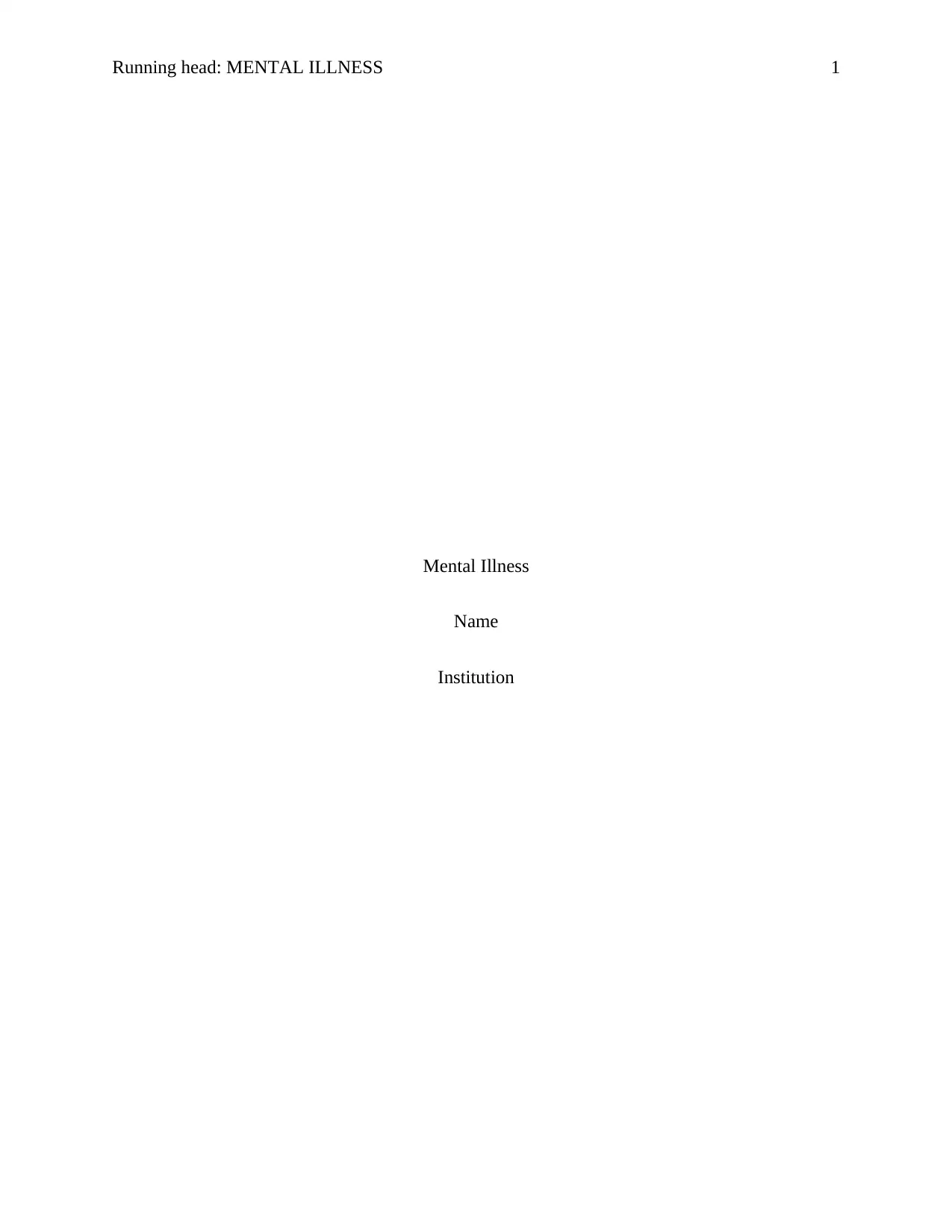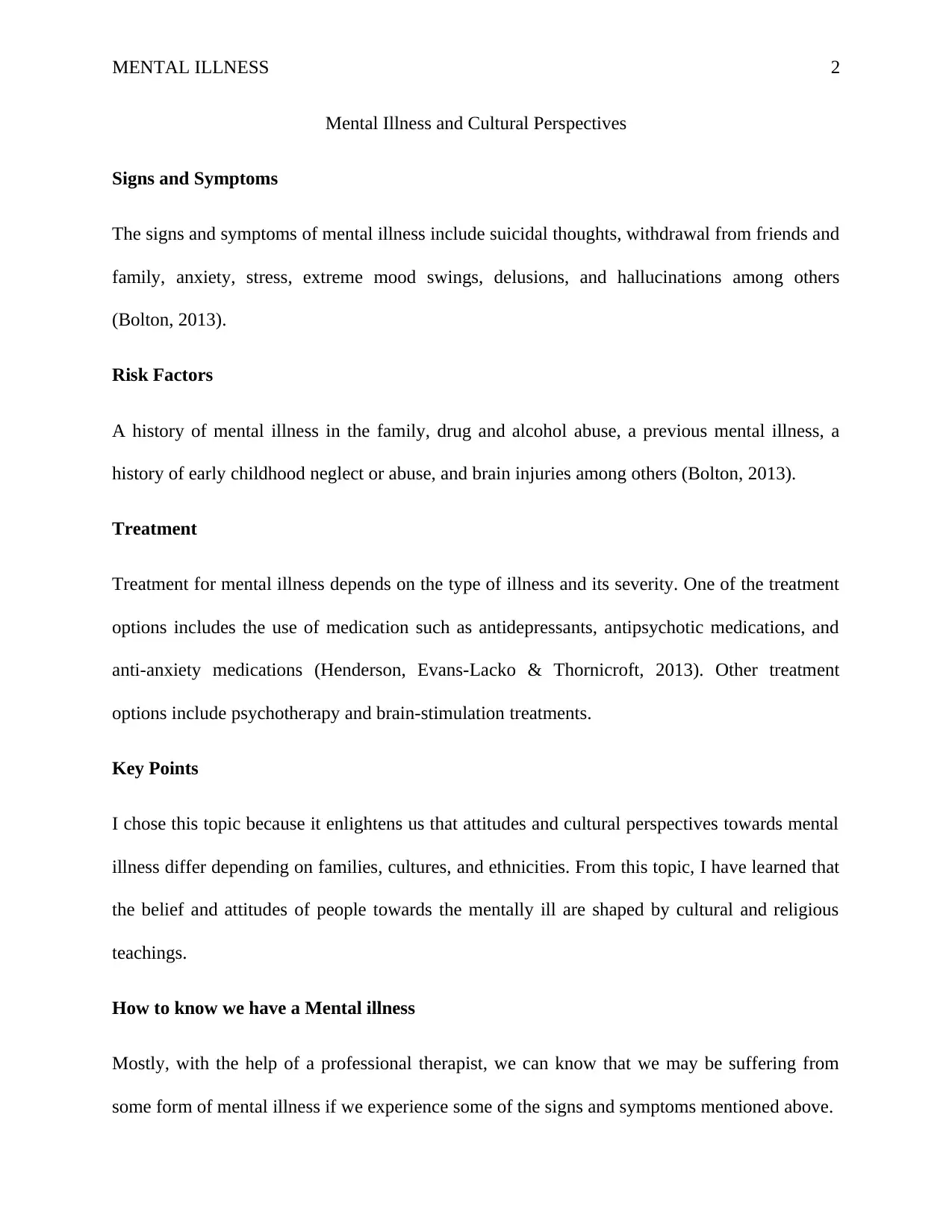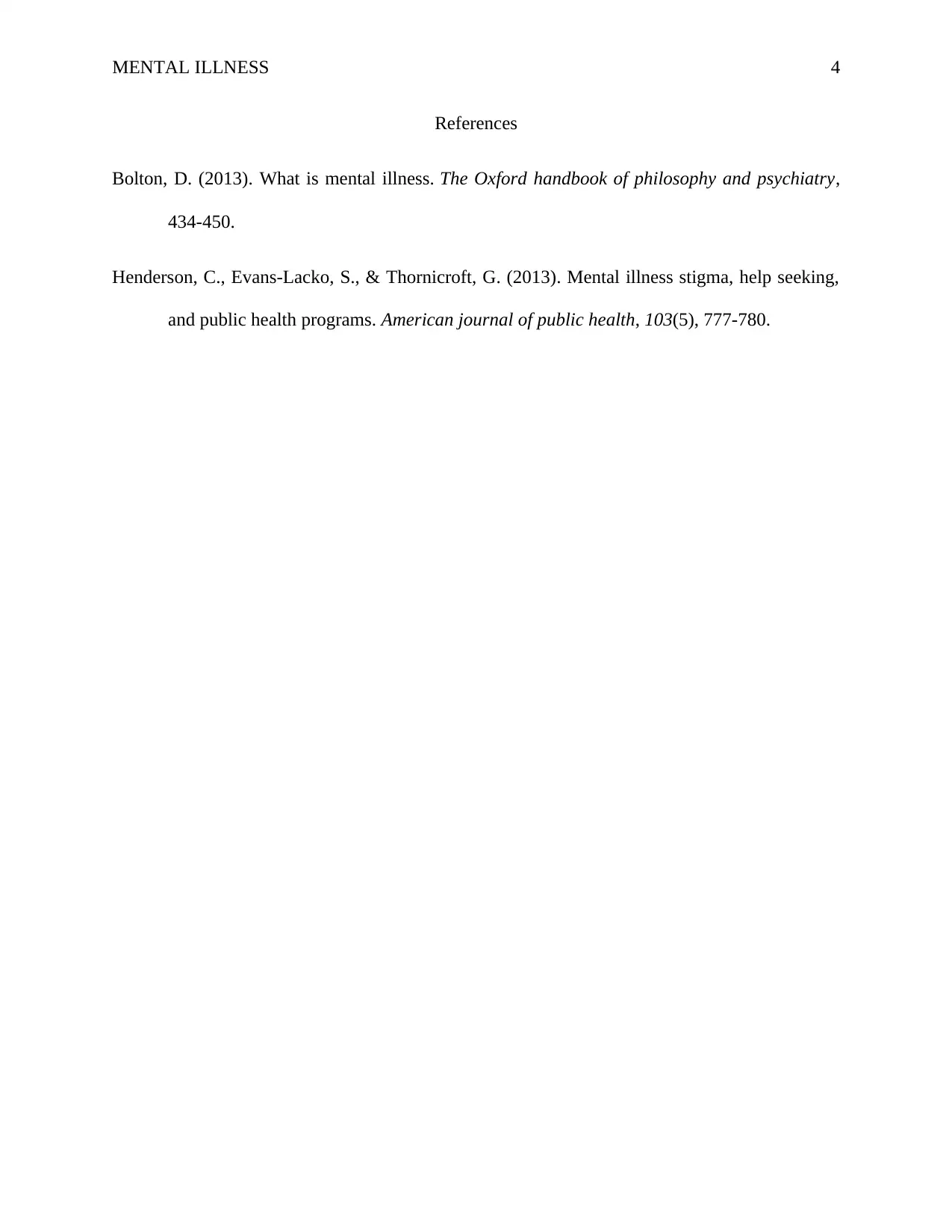Report on Mental Illness: Signs, Symptoms, and Coping Strategies
VerifiedAdded on 2022/08/11
|4
|398
|24
Report
AI Summary
This report examines mental illness, covering its signs, symptoms, and various treatment options, including medication and psychotherapy. It highlights the influence of cultural perspectives on the understanding and perception of mental health, emphasizing that attitudes towards mental illness vary significantly across different cultures and families. The report also explores the importance of recognizing symptoms, such as suicidal thoughts and extreme mood swings, and discusses coping strategies, like spending time with supportive friends and family. The main focus of the paper is to provide insights into the complexities of mental illness and to highlight the need for appropriate care and understanding, as well as a call to action for the need to tackle this issue. The report references key academic sources to support its findings.
1 out of 4











![[object Object]](/_next/static/media/star-bottom.7253800d.svg)